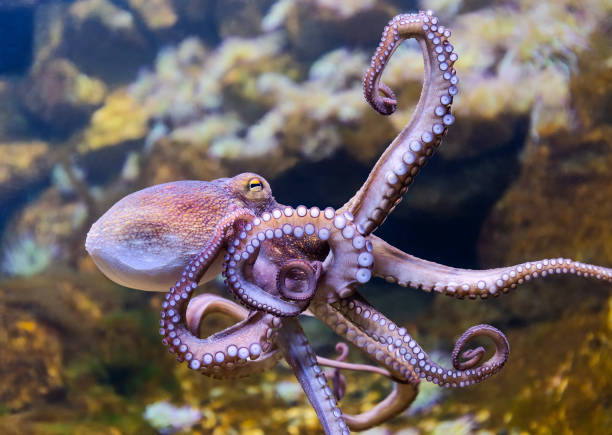The Intriguing World of Octopus Intelligence: A Dive into the Depths
Octopuses, renowned for their intelligence and versatility, are among the most captivating creatures in the animal kingdom. This article explores the depths of octopus intelligence, delving into their cognitive abilities, communication methods, and unique survival tactics.

Understanding the intelligence of octopuses is not a new endeavor. Historical records from ancient cultures indicate a fascination with these sea creatures. In the last few decades, however, scientific research has revealed extraordinary cognitive abilities in octopuses, compelling us to rethink our perception of intelligence in non-human species.
The Evolution of Octopus Intelligence
Octopuses belong to the cephalopods family, which also includes squids and cuttlefish. Over millions of years, these creatures have evolved a complex nervous system and advanced cognitive abilities. Unlike many other invertebrates, octopuses have large brains and show signs of both short and long-term memory. They can solve puzzles, navigate mazes, and even use tools—an indication of problem-solving abilities.
Communication and Camouflage: A Survival Strategy
Octopuses don’t have a sophisticated auditory or vocal system. Instead, they communicate primarily through visual signals. More interestingly, they use their unique skin cells, chromatophores, to change color and pattern rapidly. This ability is not only a mode of communication but also a survival tactic, enabling them to camouflage themselves from predators or while hunting.
The Social Behavior of Octopuses
Contrary to popular belief, octopuses exhibit complex social behaviors. Observations reveal that octopuses can recognize and behave differently towards fellow octopuses they are familiar with. These findings challenge the traditional view of octopuses as solitary creatures and hint at a more intricate social structure.
Recent Discoveries and Future Research
Recent studies have uncovered fascinating aspects of octopus intelligence. In an experiment conducted in 2020, octopuses were found to be able to manipulate objects in a similar way to humans, suggesting a level of motor intelligence previously thought unique to primates.
The field of octopus intelligence is still burgeoning, with many mysteries yet to unravel. Scientists are particularly interested in understanding how octopuses, with their distributed nervous systems, process information differently from animals with centralized brains. These findings could revolutionize neuroscience and our understanding of intelligence itself.
The Impact of Octopuses on the Pet Trade
While octopuses’ intelligence makes them captivating, they are challenging to keep as pets due to their specific habitat needs and short lifespan. A captive octopus can range from $30 to $1000, depending on the species. However, their popularity in the pet trade raises concerns about wild populations’ sustainability and ethical issues related to keeping such intelligent creatures in captivity.
In conclusion, the intelligence of octopuses offers a fascinating glimpse into the cognitive capabilities of non-human species. As we continue to explore this topic, we can only expect to uncover more surprising insights into these remarkable creatures.




